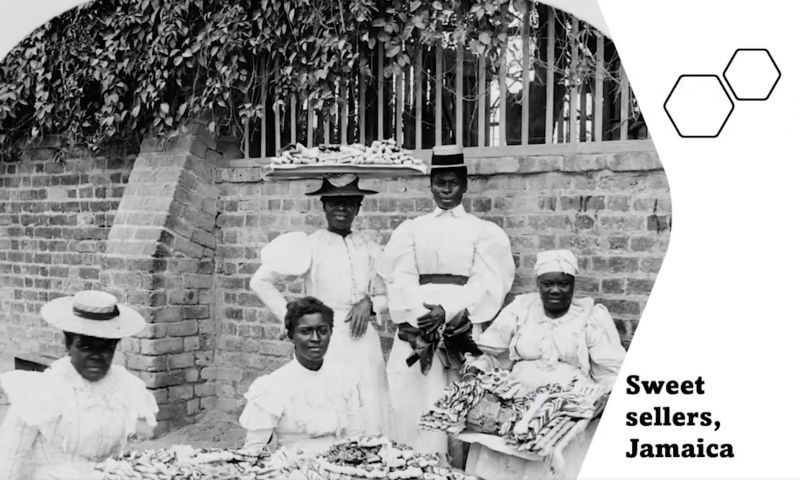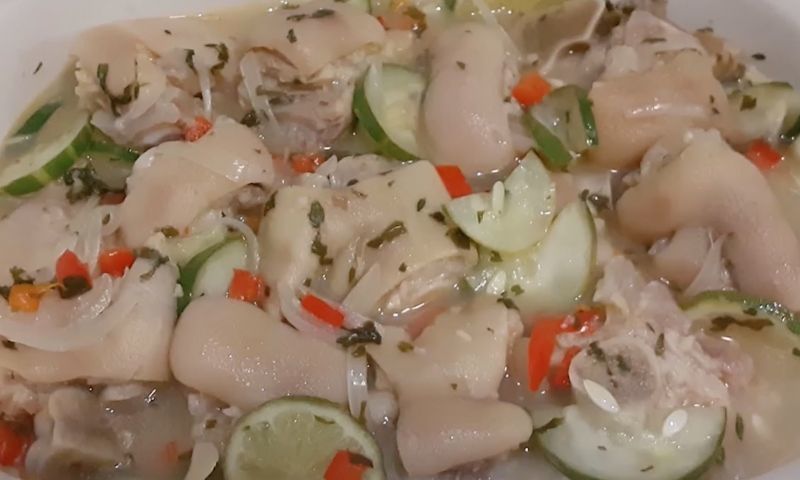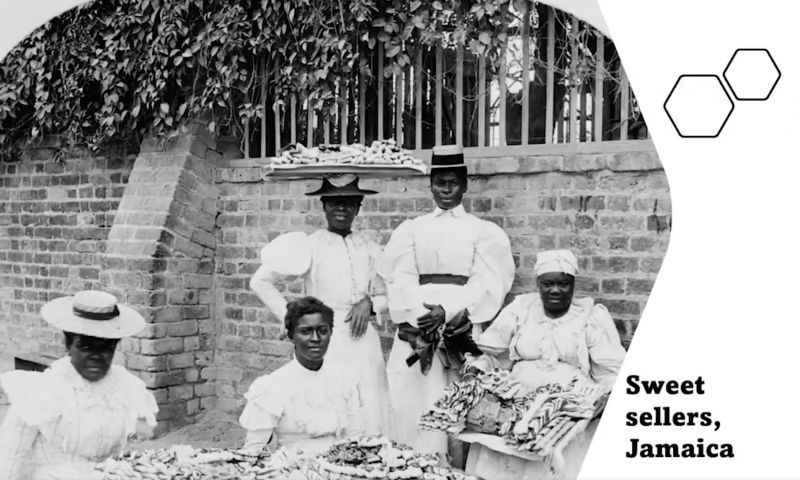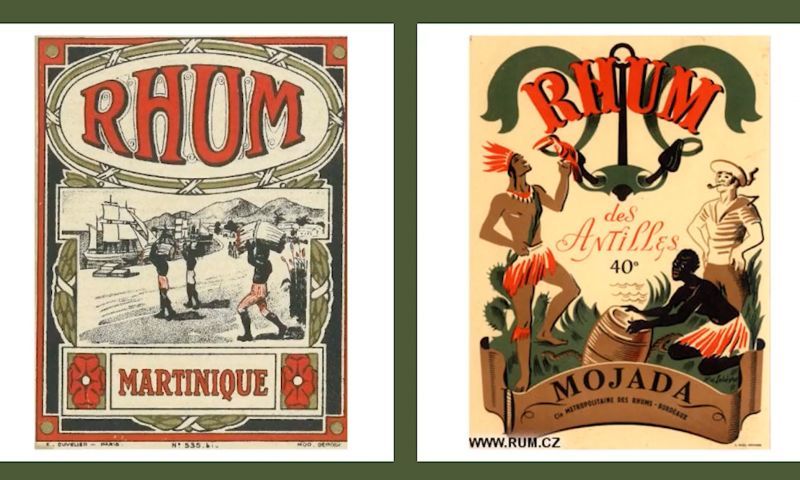
VI’s high starch, alcohol & sugary diets have genesis in slavery- Eugenia O'Neal
 This she said has incubated the very diseases that plague the region, including chronic diseases like hypertension and diabetes that result in Virgin Islanders being vulnerable to the COVID-19 virus.
This she said has incubated the very diseases that plague the region, including chronic diseases like hypertension and diabetes that result in Virgin Islanders being vulnerable to the COVID-19 virus.
Diets & colonisation
Ms O'Neal's conclusion came during a presentation as part of the Virtual Emancipation Ceremony 2021 on August 2, 2021.
She said the diets that African sales were made to live on also impacted the diets of Caribbean people during and after colonization.
Before slavery, O'Neil said the diets of Africans were based on fruits and grains, in addition to vegetables, legumes, nuts, and fish.
“Fish was often eaten by those on the coast or near rivers, but meat was rare and reserved for special occasions. The diet was sparse on salt, sugar, and dairy and even alcohol was usually only consumed on special occasions.”
According to O’Neal, it was in the Americas, when forced to work under slavery that the diets of Africans and their descendants changed.
“Many plantation owners allocated land on which the enslaved could grow food, but, as you'd expect, this was usually mountainous or rocky soil unsuited to sugar cane and also to grow other crops. Crops grown or provision grounds nevertheless included yams, cassavas, and okra,” she said.
Dependence on Carbs
The high labour slaves then turned to the starchy carbohydrates as the dominant nutrients which resulted in scores dying of malnutrition throughout the region because of the diet.
These diets she said was supplemented with salty foods added to the diets of Africans, including saltfish, saltfish cakes, ackee and saltfish and saltfish souse.
“Parts of animals unwanted by the planters such as tripe, oxtail, pigs feet [and] pig ears were passed on to the enslaved. Usually, these were the fattiest or grittiest parts of the animal, certainly the parts that did not contain the greatest nutrition,” she said.
Added to that, the sugar plantation also changed the Caribbean diets where sugar cane sparked sugar and rum and, according to O'Neal, the ancestors developed a desire for it.
As such, she said ancestors started putting sugar in everything from soup, to it even becoming a source of income for the many women who became sweet sellers of sugar cakes and nut cakes, all made of high amounts of sugar.
Taste for sugar developed
“We developed a taste for sugary and salty foods that was unknown prior to colonisation and enslavement, but diets high in sugar can raise our blood pressure and they put us at risk of gaining weight. Diets high in salty foods can do the same thing, raising our blood pressure and making us hypertensive,” she said.
“But as with sugar, it was with rum. Rum was used to trade for more captives back in Africa so enslaved people were used to make a product traded for more captives,” she said.
Ms O'Neal said the result today, is that alcohol is now in black cakes, guava berry wines, and our sorrel, “Today, big alcohol in the Caribbean has intertwined itself with both tourism and culture so that we can hardly think of one without the other.”
She said alcohol makes big profits but the health cost of alcohol takes a toll on society, "it's health effects can include sclerosis of the liver in men and women and breast cancer in women,” she said.
Diets resulted in today's chronic diseases
Ms O'Neal added that other health effects of alcohol is that it can affect brain function and make persons vulnerable to heart disease while weakening their immune system.
Further, Ms O'Neal said modern life coupled with smaller plates of vegetables, high starch diets, and less active people have resulted in some of the unhealthiest people in the Caribbean region.
“We stopped moving but our diet remained as it was, heavy on starches, sugar, salt, and far too many alcohols."
She said heart disease and diabetes rates in the region are among the highest in the world and noted that persons who are suffering from hypertension or obesity today remain particularly vulnerable to COVID-19 as a result of what they eat.
 Ms O'Neal's conclusion came during a
presentation as part of virtual emancipation ceremony 2021 on August 2,
2021. She said the diets that African ancestors were made to live on,
still impact the diets of Caribbean people during and after colonization.
Ms O'Neal's conclusion came during a
presentation as part of virtual emancipation ceremony 2021 on August 2,
2021. She said the diets that African ancestors were made to live on,
still impact the diets of Caribbean people during and after colonization.
 : The high labor slaves then turned to
the starchy carbohydrates as the dominant nutrients which resulted in
scores dying of malnutrition throughout the region because of the diet.
: The high labor slaves then turned to
the starchy carbohydrates as the dominant nutrients which resulted in
scores dying of malnutrition throughout the region because of the diet.
 Ms Eugenia O'Neal pointed out that discarded means after became the diet of africans.
Ms Eugenia O'Neal pointed out that discarded means after became the diet of africans.
 Ms Eugenia O'Neal said as a result of
the plantation society, ancestors started putting sugar in everything
from soup to even providing a source of income for the many women who
became sweet sellers of sugar cakes and nut cakes, all made of high
amounts of sugar.
Ms Eugenia O'Neal said as a result of
the plantation society, ancestors started putting sugar in everything
from soup to even providing a source of income for the many women who
became sweet sellers of sugar cakes and nut cakes, all made of high
amounts of sugar.
 Ms O'Neal said the result today, is that
alcohol is now in black cakes, guava berry wines, and our sorrel,
'Today, big alcohol in the Caribbean has intertwined itself with both
tourism and culture so that we can hardly think of one without the
other,' she said.
Ms O'Neal said the result today, is that
alcohol is now in black cakes, guava berry wines, and our sorrel,
'Today, big alcohol in the Caribbean has intertwined itself with both
tourism and culture so that we can hardly think of one without the
other,' she said.










